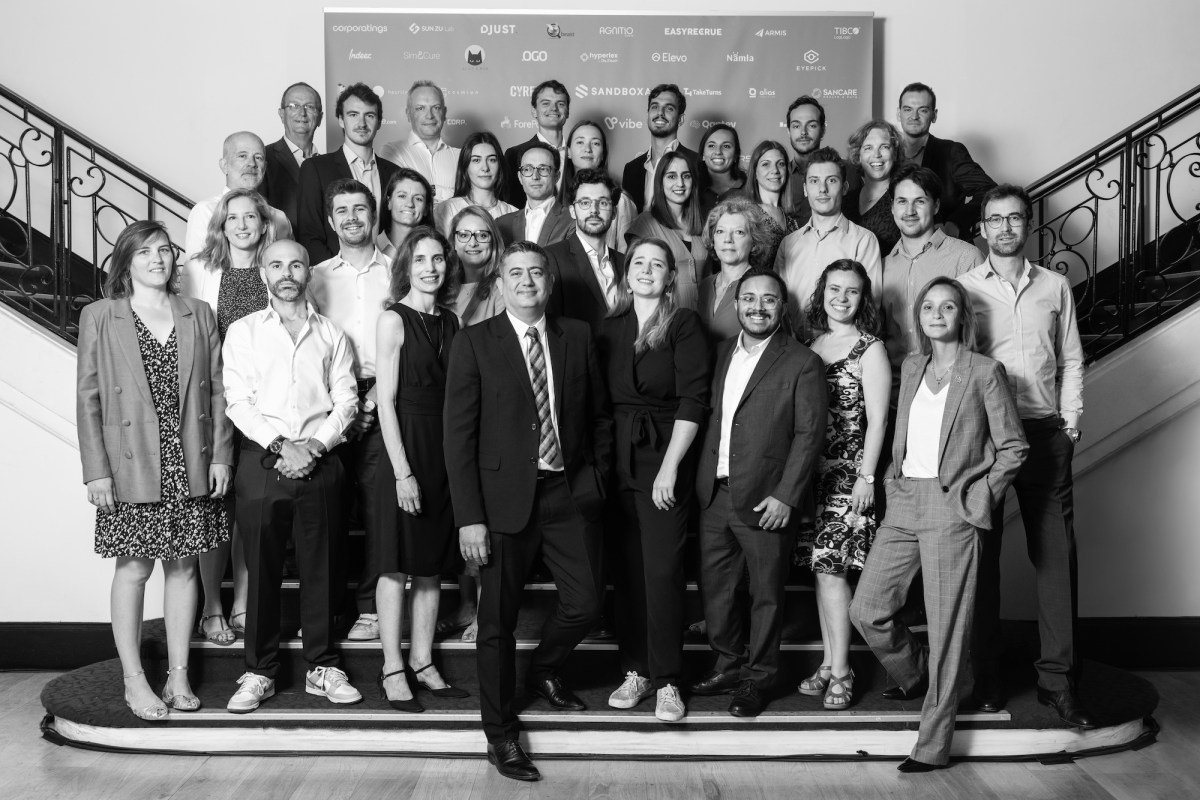Deep Tech on the Rise in Europe
The field of deep technology is rapidly expanding in Europe, driven in part by the intersection of artificial intelligence with a local expertise in mathematics. But this growth is not without outside support, with a strong community, public backing, and increasing levels of funding.
Elaia, a French venture capital firm, is a prime example of this trend. Anne-Sophie Carrese, a managing partner at Elaia, told TechCrunch, “It is double the size of the two previous funds.” The firm’s third deep tech seed fund, DTS3, has a first closing of €60 million, with a goal of reaching €120 million by early 2025 when fundraising is complete. Three startups have already been selected to join the fund’s portfolio.
Elaia has built strong relationships with research institutions over its long history, which has proven to be a valuable source of deals. In some cases, the firm has even had priority or exclusive access to projects from certain labs. This has led to investments in companies such as Aqemia, Alice&Bob, and Mablink Bioscience. One notable success story is biotech company Mablink Bioscience, which was acquired by Eli Lilly. According to Carrese, this was “a very nice exit” for Elaia.
The success of these companies is one reason Elaia decided to increase the size of its fund. With more capital, the firm will have a larger pool to draw from and will be able to support its most promising investments. DTS3’s goal is to invest small tickets in around 40 early-stage B2B deep tech startups, with plans to follow on in 25 to 30 of them as they move closer to the seed stage.
The Three Pillars of DTS3: Computing, Industry, and Life Science
The deep tech fund will focus on three pillars: computing, industry, and life science. Pure AI, quantum, and cybersecurity fall under the computing umbrella, but DTS3’s capital could also be invested in AI-driven chemistry and biology. The industry pillar covers a broad range of sectors, including energy, climate tech, and new materials.
Carrese explains, “It’s really a multi-sector fund, and our Elaia team has investors who specialize in each of these sectors.” She goes on to say, “We have to make 80% of our deals in the EU, but the remaining 20% is open to the rest of the world.” However, the majority of that remaining 20% will likely go to companies in Spain and Germany, two countries where Elaia has been particularly active.
European Dynamism: A Response to “American Dynamism”
DTS3 is just one example of a larger trend in Europe: the rise of European dynamism, a term coined by the venture capital firm a16z to describe the continent’s growing tech ecosystem. Kyle O’Brien, a Paris-based entrepreneur and investor, is a vocal advocate for European dynamism and the founder of two initiatives, The European Dynamism 50 report and tech tour.
O’Brien defines European dynamism as “more of a movement than a category or industry vertical.” He adds, “I think, now more than ever, we need something like that to capture the attention of founders, as well as capital domestically and from abroad. So the idea behind the tour is to attract American investors to come over here and explore what that means.” Elaia is the French ambassador for the upcoming tech tour, which will take a group of general partners from U.S. VC firms to four countries in less than a week next June. The itinerary includes visits to CERN, a rocket factory, ETH Zurich, and ASML, along with other activities. And of course, no tour of Paris would be complete without a boat cruise on the Seine and plenty of AI discussions.
O’Brien’s report, published this week, showcases 50 European deep tech companies, but is not intended as a ranking. He explains, “The only quantitative aspect is that we gave each country a number of companies proportional to the amount of VC dollars that go into their deep tech system.” Not surprisingly, Elaia’s portfolio companies make up a significant portion of the French contingent on the list. One notable company is Zama, a French encryption firm that recently announced a $73 million round of funding.
Elaia CEO Rand Hindi, who is also a founding partner at Unit Ventures, is another prominent player in the French deep tech scene. Hindi and O’Brien have already partnered on several investments and are planning to launch a fund in the first half of this year.
While O’Brien and Hindi may sometimes overlap in investments, they don’t fully agree on the term “deep tech”. Hindi still sees it as a useful label, explaining that for Elaia, “deep tech is a natural fit, as we’ve always been very close to research.” Meanwhile, O’Brien has started using “dynamism” instead of “deep tech” in his pitch decks to LPs.
French Talents and Tailwinds
Elaia’s partnerships with research institutions also leverage France’s strengths in mathematics, which has been instrumental in developing the country’s expertise in generative AI. Lazarus, one of Elaia’s partners, is a former researcher in pure mathematics. Carrese adds, “We have natural connections with all the math laboratories, and we see our former classmates and their students becoming little AI wizards and building some of the most iconic companies of the moment.”
Aside from nurturing talent, public policy in France also supports the growth of the tech ecosystem. Two names that come to mind are Philippe Tibi and Bpifrance.
Tibi, a former student of Polytechnique, is the namesake of the initiative that encourages institutional investors, including major insurance companies, to back venture capital funds, something that has not traditionally been common in France. Tibi’s report was released in 2019 and has had a significant impact on the French tech landscape. According to Carrese, Elaia was one of the first funds accredited under Tibi’s initiative, and this has given them access to leading institutional investors with whom they hope to establish long-term relationships.
Another key supporter for DTS3 is Bpifrance, a major investor in the fund. According to Carrese, the public sector investment bank is also a driving force behind the rise of French tech. All of these factors make France the ideal playing field for DTS3, as Carrese explains, “We plan to keep two-thirds of our deal flow in France because it creates an extraordinary dynamic for the creation of startups.”








